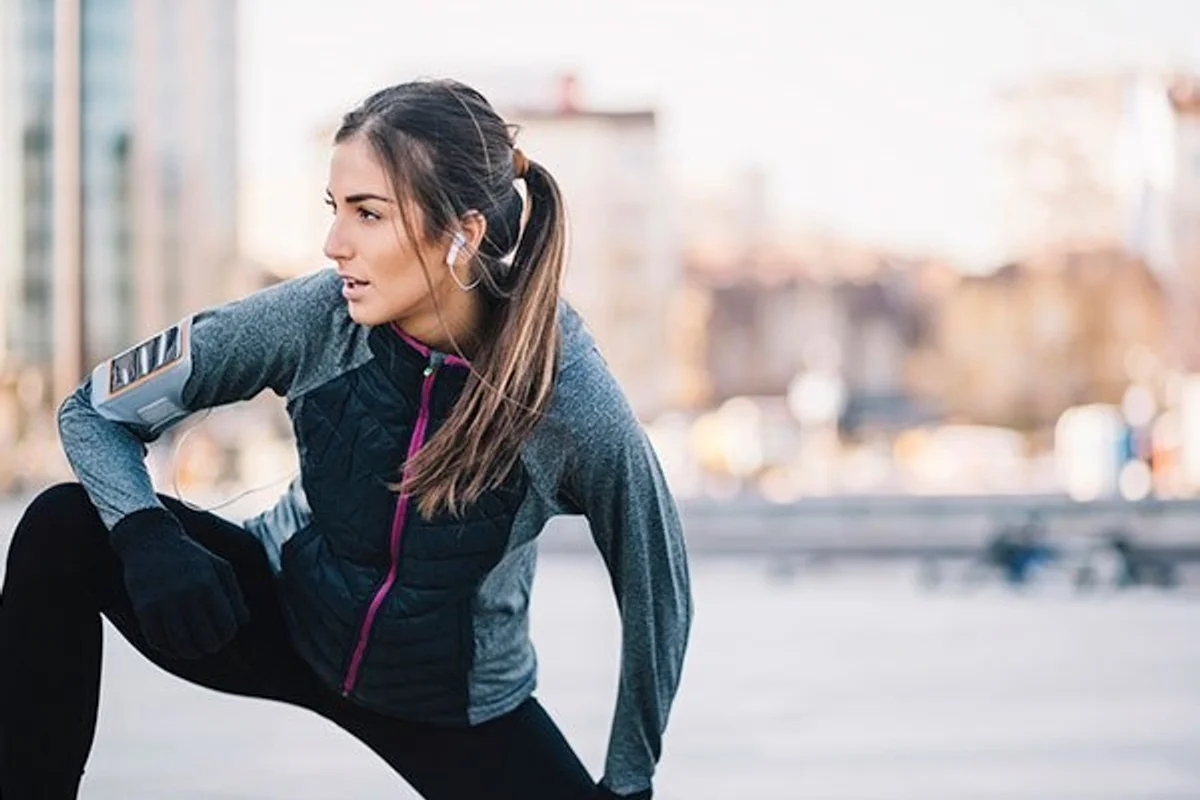You're finishing your workout and mentally running the list of everything you need to do as soon as you hop off the treadmill. Drop off your daughter at preschool. Stop by the drugstore. And then hightail it to work before your boss gets into the office.
Cool down? Who has time!
However, fitness doesn't end when you finish your workout routine. There are still a few steps to good health. Here are some tips on what to do during your post-workout routine.
1. Cool down. If you stop exercising too suddenly, you may feel lightheaded or dizzy. Your temperature rises when you exercise, and your blood vessels widen. Your body needs the opportunity for its blood vessels to return to normal. So, take advantage of your treadmill's cool-down setting. Or after a run, slow down and walk for a few minutes, depending on how intensely you exercised.
2. Stretch. You want your body to return to how it was before you started your workout. Muscles stretch and lengthen best when they're warm because they're more elastic and pliable. As the muscle cools, it contracts. Stretching will help decrease soreness, accelerate your recovery process, relax tension from the workout and increase and build your range of motion. The Mayo Clinic offers this guide to basic stretches.
3. Drink up. With water that is! When you work out, your body loses water. You want to replenish your body's water supply to help increase muscle flexibility and strength and decrease muscle soreness. And while it's important to hydrate after you break a sweat, you don't need a sports drink—which is brimming with unnecessary calories—unless you've had a lengthy and intense workout. How much water you need to drink varies. In general, the American College of Sports Medicine says you should drink about two to three cups of water after you work out for every pound of weight you lost during the workout.
4. Change your clothing. Seems like a no-brainer, right? But maybe you're in such a hurry to get to the preschool drop-off line that you just don't have time to swap attire. So, you're planning to get dressed for the day at home or work. Even if you can't change your whole outfit, it's important to remove any wet clothing, like your bra, underwear and socks. Soggy workout clothing can trap moisture, promoting the growth of yeast, fungus, bacteria and germs. And that can lead to breakouts or skin infections.
5. Take a cool shower. You don't need to take an ice bath like a pro football player. But, adjust the shower's temperature to lower than you typically do. A cool shower can increase the healing process and decrease your muscle inflammation after a workout. And reducing inflammation lowers your chances of soreness the next day.
6. Let your body recover. That means you don't have to schedule another intense workout for tomorrow. More isn't always better, so nix the double spin class sessions. If you don't give your muscles time to recover, they won't be able to heal and repair. Mix up your workouts so you're using different muscles tomorrow or schedule a lighter workout.
7. Munch on the right snack. Forget about celebrating the end of your workout with a big bowl of rocky road ice cream. Consuming junk food and overeating will negate the effects of your workout; you'll just regain all the calories you burned and sometimes even more. How's that for being counterproductive? On the flip side, some people try to maximize their workouts by cutting calories and skipping meals. But that means you're denying your body of the fuel it needs. Instead, eat right to help reduce muscle soreness, perform better on your next workout, give your body fuel and optimize recovery. And that means you'll help replenish and rebuild muscles.
Some healthy post-workout snacks include:
- Nonfat or low-fat plain Greek yogurt with fruit or granola: Top protein-brimming yet low-in-fat yogurt with ½ cup of sliced bananas, carb-filled berries or some granola.
- Whole-grain waffles with nonfat or low-fat Greek yogurt and almond butter: This snack provides an ideal combination of carbohydrates, protein and healthy fat. Top a frozen waffle with 1 tablespoon almond butter and some low-fat Greek yogurt.
- Nonfat or low-fat chocolate milk with whole-grain salted pretzels: Chocolate milk is a well-kept secret for recovery, especially for endurance athletes like cyclists, swimmers, long-distance runners and triathletes. It offers protein and sugars, both of which you'll need after a long workout. (Vegans can try a flavored soymilk.) Plus, you can pour some in a water bottle, making it easily portable. The pretzels can help you regain the sodium you sweat out.
- Tuna on whole wheat: This sandwich packs a carb-and-protein punch while also being low in calories. Put four ounces of water-packed tuna (a lean protein) on a slice of whole-wheat bread. Flavor by drizzling some lemon juice and olive oil on top.
- Banana with almond butter: Grab a banana, a nutritional powerhouse. Top it with 1 tablespoon of almond butter, which offers protein and a healthy fat. Because almond butter is high in calories, consume in moderation.
Beware of protein bars. Sure, they're convenient because they're portable and quick. But, a single bar may actually be two servings, and it may be loaded with sugar. The same goes for smoothies—they're a convenient way to refuel, but watch out for excess sugar and calories.
- How to Lose Weight When Nothing Seems to Work - HealthyWomen ›
- Do These 5 Things to Get Healthy and Fit - HealthyWomen ›
- Tips for Building Endurance - HealthyWomen ›
- Yoga and Weight Loss - HealthyWomen ›
- Group Exercise May Be Even Better For You Than Solo Workouts – Here’s Why - HealthyWomen ›
- Eating Before Exercise - HealthyWomen ›
- How Much Water Do We Really Need to Drink? - HealthyWomen ›







